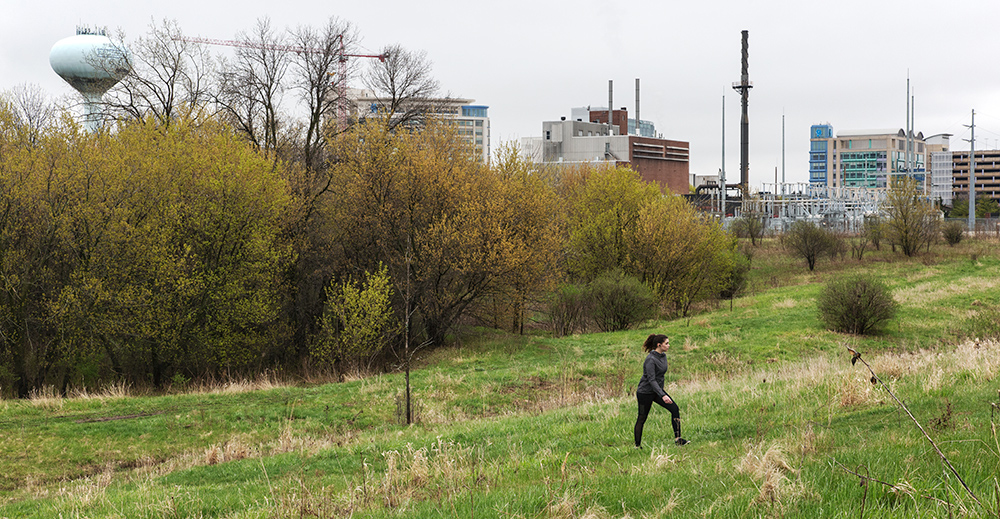
Building healthy cities: The Nature Conservancy comes to Milwaukee
June 19, 2019 | Topics: Stories
By Cate Harrington
Building Healthy Cities: Our Work in Milwaukee
You may know that Milwaukee is home to Miller Park, Harley-Davidson, the Milwaukee Art Museum and Summerfest! But did you also know that Milwaukee is nationally recognized for its innovative use of green infrastructure solutions—using nature to help solve urban challenges like managing storm water?
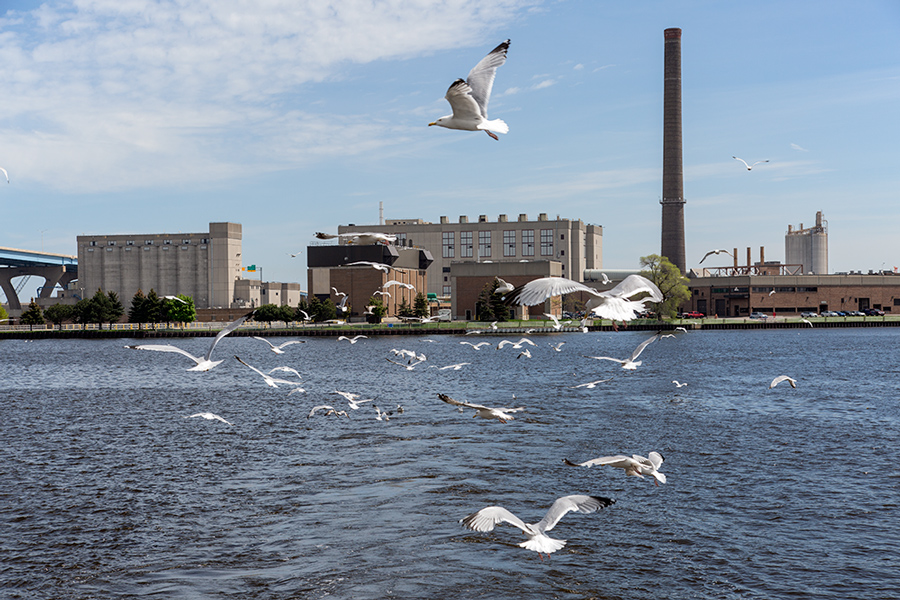
Cities are home to more than 62 percent of the U.S. population and, by 2050, two of every three people on Earth will live in a city. To protect nature, cities can no longer be an after-thought—they, and the people that bring them to life, can be the solution to many of the environmental challenges we face. Well-planned cities that incorporate nature can bring countless benefits to the entire world.
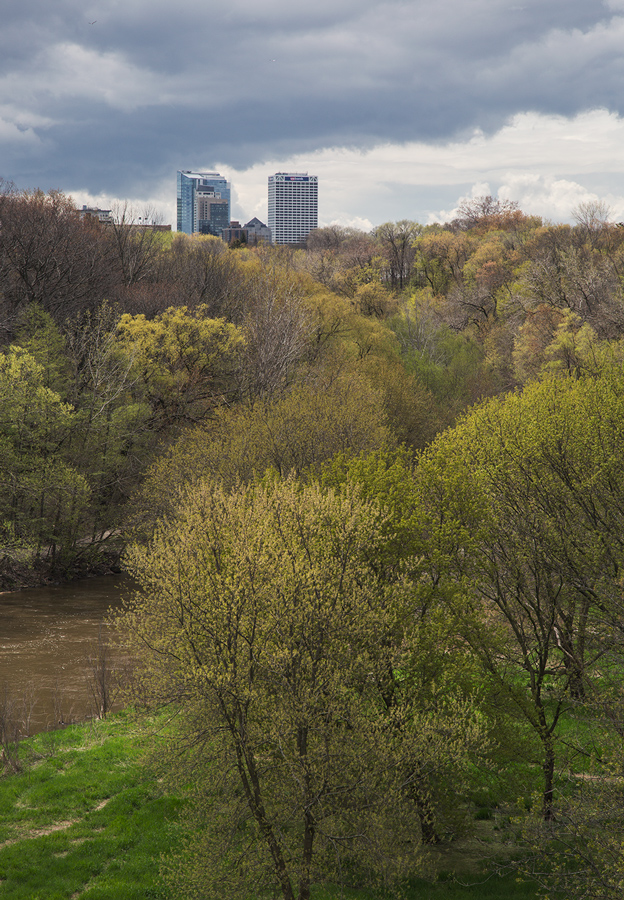
The Nature Conservancy (TNC) has established a global cities program and a network of 24 cities in the U.S. with the goal of changing the relationship between cities and nature.
In Wisconsin, we have launched a year-long planning process to explore conservation opportunities in the Greater Milwaukee region where we could make a difference. There are many agencies and organizations already doing great work in the region, and one of our first steps is to reach out, learn what they are doing and explore opportunities for collaboration.
Meet Our Wisconsin Cities Conservation Fellow
Lainet Garcia Rivera, our Cities Conservation Fellow, is leading that process. A native of Cuba, Lainet earned her bachelor’s degree in biology and master’s degree in zoology and ecology from the University of Havana. She worked at the Ecology and Systematics Institute in Cuba conducting research in bat ecology and teaching conservation biology courses. In 2010, she moved to the United States and spent six years at the Urban Ecology Center in Milwaukee where she taught urban ecology and partnered with organizations to educate teachers and youth about nature-based solutions aimed at improving water quality and increasing biodiversity in cities.
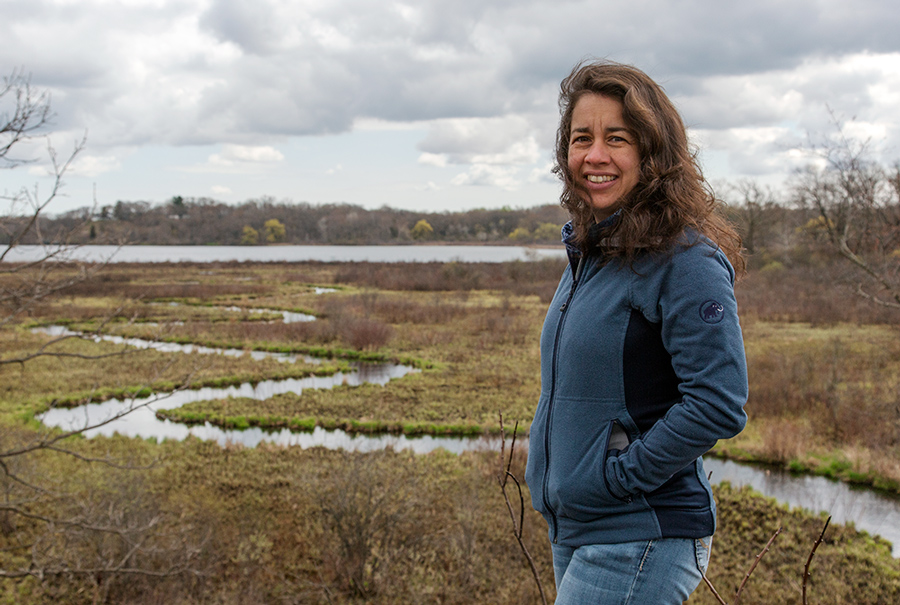
“I’m excited about collaborating with organizations and communities to identify conservation opportunities in the Milwaukee region,” says Lainet. “I have personally seen the positive changes that occurred when a green space was created on the south side of Milwaukee. Nearby neighborhoods became more vibrant, children and families went hiking and biking along the trails, and grandparents took their grandkids fishing on the Menomonee River.”
We are already collaborating with a few organizations to bring the benefits of nature to more people in Milwaukee:
High School Intern Program Builds Skills
Almost 20 years ago, we launched a program in our Mukwonago River watershed project area southwest of Milwaukee to hire local high school students as paid interns as part of our effort to train and empower the next generation of conservation leaders. In 2017, we expanded the program to include graduates of La Causa, a middle school on Milwaukee’s south side, and Milwaukee County Parks to engage youth from diverse backgrounds in conservation. The interns split their time between Milwaukee County Park lands and our Mukwonago area nature preserves mapping and controlling invasive species, creating and maintaining boardwalks and other facilities, and learning about native species and habitats, land management and other natural resources. Our new team of paid summer high school interns started in June. We will start taking applications for our 2020 summer internships next April, so keep an eye on our Careers page at https://careers.nature.org (search “Wisconsin” to find the position).
Healthy Trees, Healthy Milwaukee
In 2018, we helped the Urban Ecology Center plant 1,000 trees in Washington and Brown Deer parks, doubling the number of trees Milwaukee County Parks was able to plant last year. Trees are not only beautiful, they clean our air and water and provide shade on hot days. The new trees will fill in forest canopy gaps and replace some that were killed by emerald ash borers. We also partnered with Milwaukee County Parks and the Urban Ecology Center to train staff to monitor tree health and share tree care basics with volunteers.
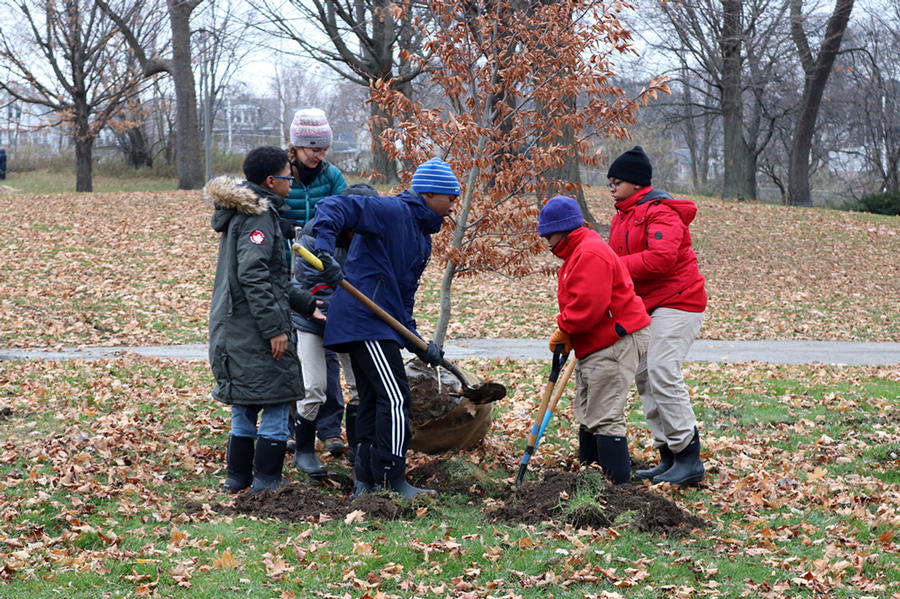
Escuela Verde Students Build Garden and Connections
The TNC city team was awarded with a grant in January 2019 to initiate a partnership with Escuela Verde, a public charter school in a former industrial area surrounded by majority Hispanic neighborhoods with one of the lowest rates of public green space and park access in Milwaukee. During this collaboration project, students will learn about land stewardship and pollinators through visits to TNC nature preserves in the Mukwonago area. They will use native seeds they collect at TNC preserves to create pollinator gardens at their school, and will share their knowledge with the community at Noche de Altares event on November 2019.
In May, students from Escuela Verde visited the TNC Mukwonago nature preserves for the first time. Sixteen students and two instructors participated. After an introduction they were given gloves and bags and headed to the trail with Jerry Ziegler, Southeast Wisconsin Land Steward. They worked hard pulling garlic mustard for about two hours. Jerry weighed the garlic mustard the students collected and it was a total of 173 pounds!
After lunch they hiked the trails and learned about the relationship between invasive and native species, the importance of pollinators to keep ecosystems healthy and the role of plants to store carbon. Jerry made climate change understandable and answered questions along the trail. The students’ behavior was exemplary and they were very interested in learning. We are very grateful for their help removing invasive plants.
We consider this partnership an ideal pilot project for TNC as we seek to strengthen relationships and find our best role in Milwaukee.
If you have questions or would like to discuss our planning process in Milwaukee, please contact Lainet Garcia Rivera at lainet.garcia@tnc.org.
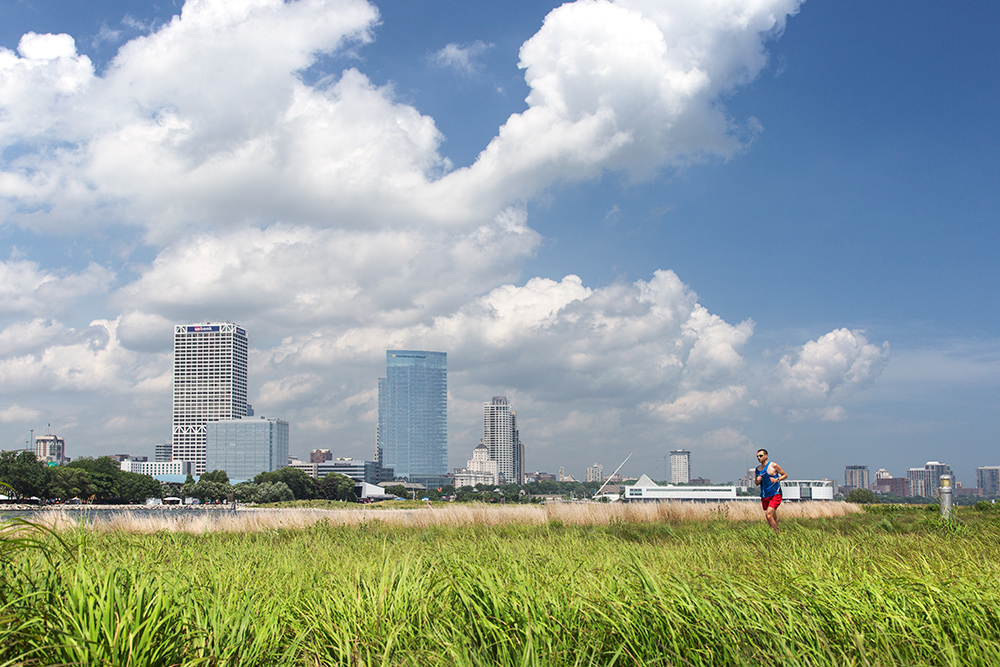
Cate Harrington is the Director of Marketing & Communications for The Nature Conservancy in Wisconsin.
Photos by Eddee Daniel, except as noted. Eddee is a board member of Preserve Our Parks.

